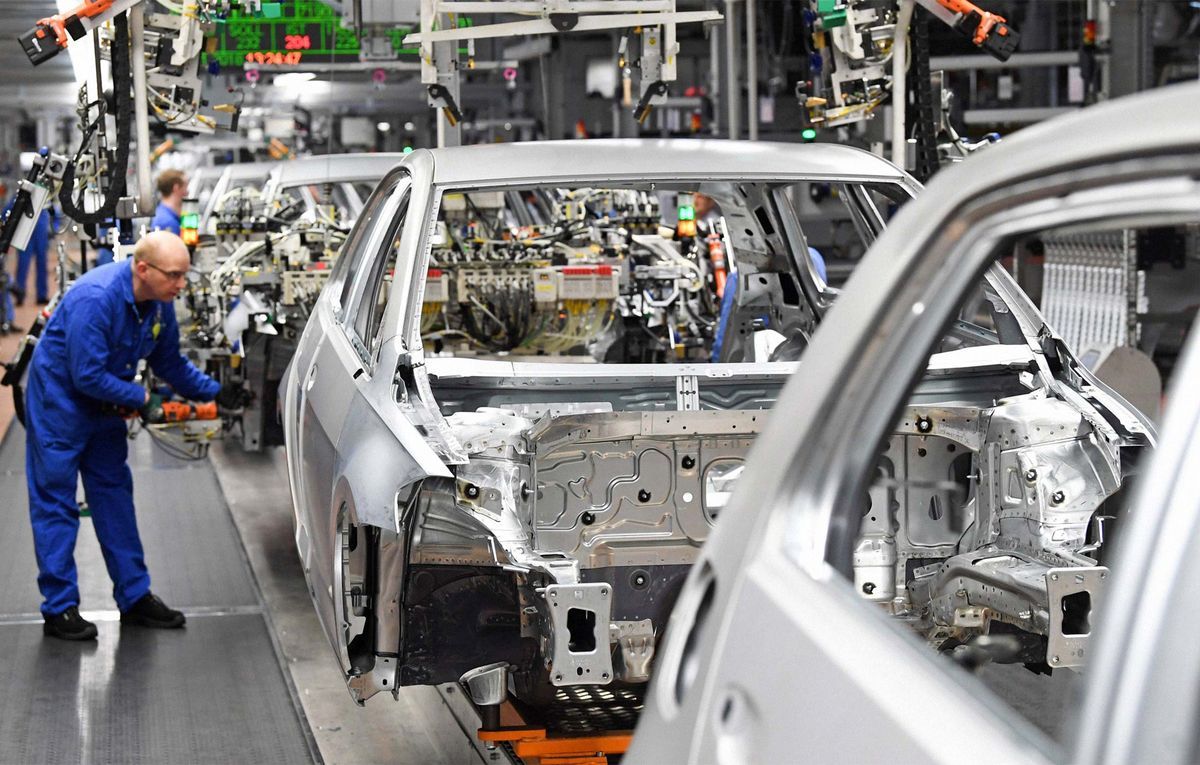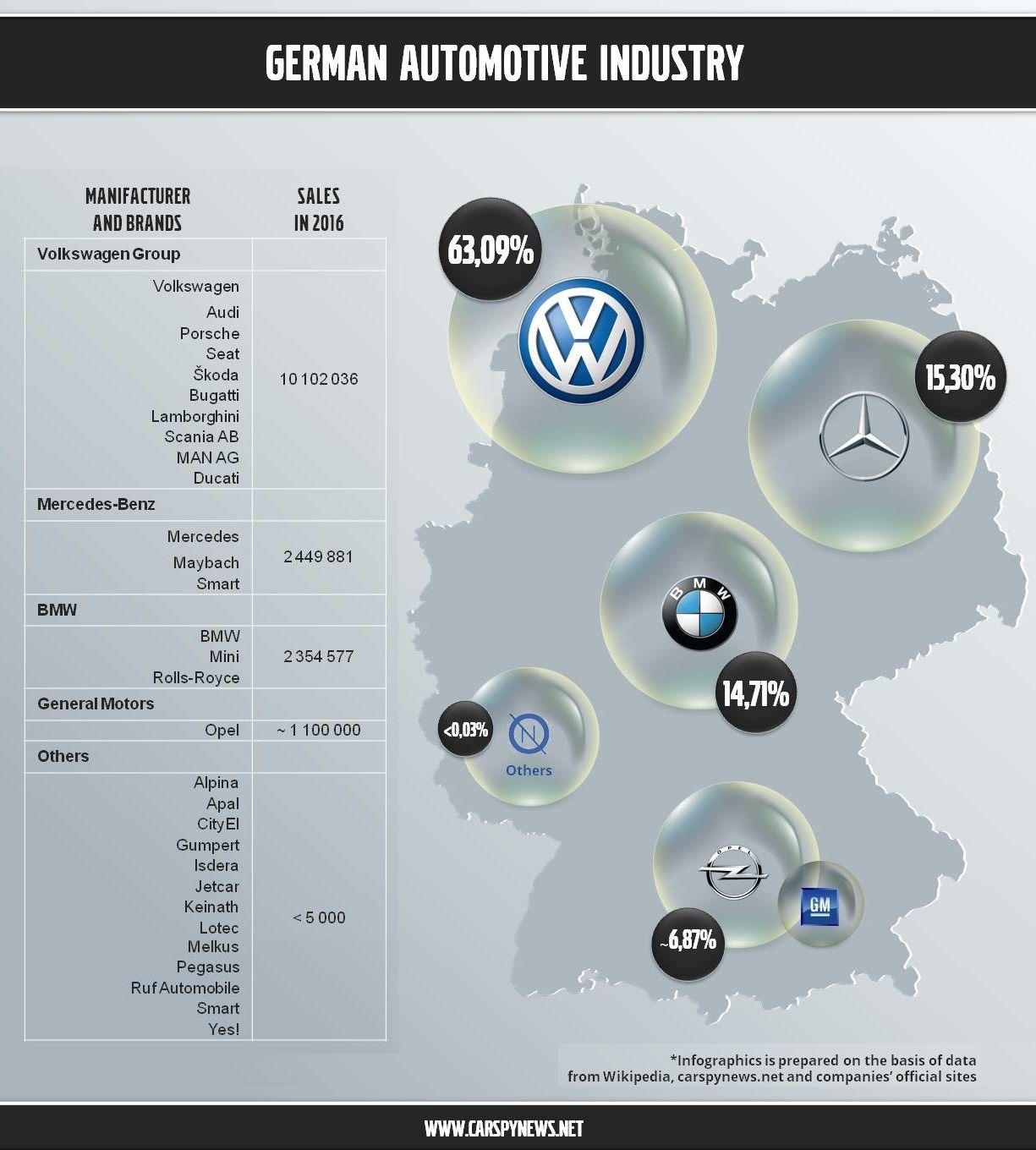Germany's automakers face serious challenges in post-coronavirus world

The economically important automotive industry in Germany is in a phase of shutdown, production standstills and declining sales.
The sector supports tens of thousands of jobs in Germany, and exports are vital to the economy of the entire country. However, demand has fallen and the industry is facing major challenges in transitioning to greener technologies. Experts tell CNBC they fear for their future.
“Car manufacturers make a significant contribution to the German economy. Almost a million well-paid jobs depend on this sector, half of them in the prosperous south of Germany, ”said economist Felix Roesel, who works at the prestigious German Ifo Institute, to CNBC on Tuesday.
"The economic downturn is now challenging thousands of jobs, incomes and tax revenues along the entire supply chain," Roesel warned the auto industry of major challenges.
“We will certainly see a decline in this industry for several reasons. Many automakers are unable to utilize their capacities to the full because many international supply chains are severely disrupted or public health restrictions still apply to factories. The car dealerships had to close for many weeks during the shutdown. And consumers who fear unemployment and lower incomes are delaying buying. This is a toxic mix for automakers. "
Berlin-based auto analyst Matthias Schmidt told CNBC: “The market is heading for a slow year - and (was) even on a cyclical downward trend before the Corona hit. The German passenger car market recorded a decline of 7.3 and 10.8 percent in both January and February, ”he said.

“One trend I see over the next few months could be a market that sees strong year-over-year growth in the summer months, driven by government incentives (in whatever form) as manufacturers try to shut down a summer Use The window of the car dealerships is open, a growing appetite for private mobility after Covid (and) an advance before a possible second corona wave affects the last months of the year. "
With fewer people likely to travel on summer vacation due to the pandemic, the usual slow summer months could look very different this year as consumers want to take advantage of these new deals on the table, he added.
However, automakers could also take advantage of the crisis to cut jobs as the industry accelerates its efforts to streamline manufacturing and focus on a new era of electric vehicle manufacturing.
"Manufacturers could even use this climate situation in Covid to cut much-needed jobs and become more efficient, using the pandemic as the perfect excuse to bypass powerful unions that are ready to fight tooth and nail for their members" said Schmidt.
The coronavirus pandemic in Europe resulted in almost all major businesses being closed for much of March and April. Restrictions were gradually lifted in most economies in mid-May. In Germany, for example, the car dealerships reopened at the end of April, and car giants like Volkswagen resumed production at the beginning of May.
Even under the pressure of falling car sales and a complete slump during the coronavirus lockdown, the country's auto industry was hoping for help from the federal government. Help came last week when the coalition of the Christian Democratic Union (CDU) led by Chancellor Angela Merkel, her Bavarian sister party, the Christian Social Union (CSU) and her partners in the Social Democratic Party (SPD) 130 billion euros (147 billion US dollars) Dollar) announced) stimulus package for the economy.
However, the measures announced for the automotive industry were somewhat disappointing. Measures included a temporary cut in Value Added Tax (Value Added Tax), which reduced the tax on all goods, including cars, from 19% to 16%, as well as a € 6,000 purchase incentive for electric cars that cost less than € 40,000 (an amount which excludes some bonuses (electric models) the industry leaders had also hoped for a scrapping program to incentivize the purchase of new cars. And while the industry is actually moving to electric models, gasoline and diesel models still make up the majority of production and purchases.
The package’s biggest losers, according to Naz Masraff, Director of Europe at Eurasia Group, are the German automotive industry and car-heavy regions like Bavaria, Baden-Württemberg and Lower Saxony, which are home to huge BMW, Daimler and Volkswagen production plants, respectively.
The BMW group plant in Dingolfing, a town in southern Bavaria, is the automobile manufacturer's largest vehicle production location in Europe and employs around 18,000 people and 800 trainees. The VW plant in Wolfsburg is now the world's largest single car complex, and the city itself grew up around the plant. It employs around 20,000 people.
BMW, VW and Daimler, all of which are giants in the German automotive industry, are making strides in producing many more electric vehicles, although traditional models still make up the majority of production. Masraff from the Eurasia Group noted that the federal government's measures showed a significant push towards electric vehicles.
“While the package excluded a general cash incentive for buying new cars, electric cars are being promoted with a doubling of the existing subsidies. In this regard, it confirms the government's position on the future development of the industry towards zero-emission vehicles. The lack of a scrapping program for diesel and gasoline cars, which the SPD should not necessarily include in the final agreement, invalidates the idea that the combustion engine will be supported during the recovery phase, ”Masraff said in a subsequent note on the package announcement.
"The double purchase premium for electric vehicles - now 6,000 euros - shows that Berlin relies on battery power and is certain that its main titans, VW and BMW, have already begun a significant shift in the direction of electric car production."
The demand for electric vehicles is sure to grow. May data from the European Automobile Manufacturers Association (ACEA) showed that the electrically chargeable vehicle segment increased its market share significantly in the first quarter of 2020, rising from 2.5% in the same period last year to 6.8% despite gasoline-powered motor vehicles still make up more than half of the EU market and diesel vehicles make up almost 30% of the market.
How does the auto industry feel?
Daimler is a giant in the German automotive industry and its largest Mercedes-Benz plant is located in Sindelfingen in Baden-Württemberg in southern Germany. The plant has been in operation since 1915 and produces, among other things, the Mercedes-Benz flagship, the S-Class, as well as the sedan and station wagon of the E-Class. The plant employs around 35,000 people.
The plant is also a focal point for innovation and design and will also produce electric vehicles and batteries in the future, according to Daimler. Currently, the automaker told CNBC it was focused on overcoming the economic impact of the coronavirus crisis.
“From today's perspective, a significant decline in global economic output can be expected for 2020 as a whole. The situation is volatile, which is why we are working with different scenarios. We adapt our previous planning depending on the scenario, ”Birgit Zaiser, Head of Production & Supply Chain Management at Mercedes-Benz, told CNBC on Tuesday.
"In view of the current spread of Covid-19, the economic impact on Daimler in detail ... cannot yet be sufficiently determined or reliably quantified," she said.
When asked whether the federal government could do more to help the automobile manufacturers, she said: "We advocate measures that create customer confidence and strengthen market demand in times of great uncertainty."
